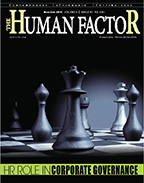Not Following but Setting Trends PROFESSOR JONATHAN KYDD (DEAN, UNIVERSITY OF LONDON INTERNATIONAL PROGRAMMES AND VISITING PROFESSOR, IMPERIAL COLLEGE LONDON) TELLS KESHIA SIROHI ABOUT HOW UNIVERSITY OF LONDON BROADENS THE HORIZONS OF DISTANCE LEARNING IN UK AND PROVIDE LIFE- CHANGING AND HIGH QUALITY EDUCATION TO ITS STUDENTS Issue Date - 01/04/2014 |
 Appointed as the first Dean the University of London International Programmes, formerly known as the External System, Professor Jonathan Kydd is responsible for facilitating the academic development of the International Programmes by building on the extremely successful period of growth over the past decade. Professor Kydd has also held the position of Director of the Distance Learning Programme, Centre for Environmental Policy at Imperial College London, which focused on international development and poverty reduction, sustainability, environment, biodiversity, economics and agribusiness. On joining the University of London, he retains a visiting professorship in the Centre. Professor Kydd is also an alumnus of the University of London International Programmes from where he completed his teaching diploma. He has also been actively engaged with a wider range of developing country and central European economic development issues though consultancy, advisory and board level activity. Prof Kydd had served on board of CDC Group plc, Chair of the Advisory Council for the Export Credit Guarantees Department (EDCG), Special Advisor to the International Development Select Committee of the UK House of Commons, for its report on DFID’s Agriculture Policy. Q. Highlight the factors that led to the inception and development of distance learning concept in the UK. What good has it done to the society, if we can say so? The foresight of our forefathers was remarkable. They anticipated 20th Century developments in flexible and distance learning by more than 100 years, and the University of London International Programmes continues with this tradition of innovation through delivering its programmes to more than 52,000 students worldwide. Queen Victoria granted the University of London its fourth Charter in 1858, which led to the establishment of the University of London International Programmes, then known as the External System. The 1858 Charter broke the link between place and study in a way that was startlingly new at the time and laid the ground for developments in University extension, correspondence and distance education throughout the 20th Century. This was a time of radical reform in access to education, led by the University of London. It played an historic and pioneering role in extending university education to all regardless of their race, religion, gender or country of residence. Not only did the University break new ground by offering men the opportunity to earn a living whilst studying, but in 1878 it became the first UK University to open its doors to women. Furthermore, the University’s contribution, both at home and across the world, cannot be understated – all English and Welsh universities founded between 1849 and 1949 offered University of London distance learning degrees, prior to receiving their own degree-awarding Charters. The University also played a significant role in the establishment of several Commonwealth universities in the middle decades of the twentieth century, including the University of the West Indies, the University of Ghana and the University of Nigeria. Our study programmes have helped enrich the lives of hundreds of thousands of students. We have seven Nobel Prize-winners, including Nelson Mandela, who studied law whilst in prison on Robben Island, but unfortunately, the conditions imposed on him by the authorities prevented him from completing his degree. Our most recent Nobel Prize-winner is Charles Kao, awarded the prize for Physics in 2009. Charles was recognised for his groundbreaking achievements concerning the transmission of light in fibres for optical communication. Amongst our students you will find great designers, engineers, industrialists, poets, teachers and lawyers, all of whom have made a difference to society. |
 In fact, one of our students from India, Apeksha Vora, has just been awarded a £20,000 scholarship by the Sir Ratan Tata Trust (SRTT) to study a Masters in International Development at the University of Sussex, in the UK. Q. In 1858, The University of London became the world’s first university to offer distance learning degrees. Being the pioneer in this field, throw some light on the vision and intent behind introducing it. When looking back at the introduction of the University of London International Programmes in 1858, there was a clear indication of the vision and intent that continues to guide the University of London to this day. That is, our vision of a world in which a life-changing high quality university education is available to all who could benefit, and our intention to provide worldwide access to internationally renowned programmes. These programmes, leading to a University of London award, are delivered through a collaboration between the University of London International Academy and the world-class constituent Colleges of the University of London. Q. Any key challenges that it faced in terms of changing the mindset of the people for increasing a distance learning degree’s acceptability among the students, society and the corporate world. Whether the University of London degree has been attained through a campus-based study programme or through distance learning, it continues to be highly valued by graduates and employers alike. Our academic award continues to open doors for our students because of its international reputation for academic quality and the rigour of its assessment process – both of which are the responsibility of academics in London. In fact, we have just received the highest judgement of “confidence” by the Quality Assurance Agency (QAA), a UK body responsible for standards in higher education. Again, this is testament to the quality of our study programmes and the learning experience of our students. Q. The University of London was also the first in the UK to admit women to degree courses in 1878. How has the institute contributed to the empowerment of women? Since 1878, the University of London has played an instrumental role in providing access to education for women. At the time, the move was radical. Indeed, Oxford and Cambridge didn’t formally award degrees to women until 1920 and 1947 respectively. By 1900, more than 30% of the 536 graduating University of London students were women. Louise Creighton was one of the first women to enter the University of London’s Special Examination for Women, which she passed with honours. A social activist, novelist and biographer, she publicly announced her support for votes for women in 1906 and became well-known as a moderate voice in the women’s movement. Indeed, the University of London International Programmes continues to empower women through education, and Dr Luisa Diogo is a perfect example. She became the first woman to be appointed Prime Minister of Mozambique in 2004, and has ranked amongst the 100 most powerful women in the world. |



